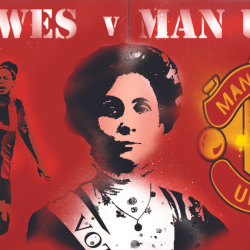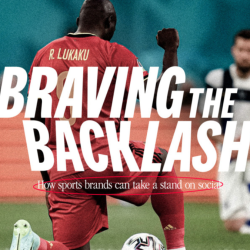Europe’s top football teams are set to play each other every week as twelve teams from England, Spain and Italy break away to form their own Super League.
After years of talk, the breakaway European football “Super League” looks set to finally become a reality. For broadcasters it could be a case of digging deep to secure the rights to show the region’s elite play against one another every week. For football’s governing bodies, grassroot organisations, fans and politicians alike, the move is being billed as the ultimate betrayal.
The announcement was made late last night that Chelsea, Liverpool, Manchester United, Manchester City, Arsenal and Tottenham were signed up to join Real Madrid, Atletico Madrid, Barcelona, Juventus, Inter Milan and AC Milan. The clubs said they could be joined by three other teams and hope to start a new season as soon is as practicable.
The new league is estimated to be worth 6bn Euros and teams signing up are believed to have been given an initial payment of between 89m and 310m Euros.
No promotions, no relegations
The Super League would not see teams promoted or relegated and so critics have suggested there will be little element of competition and no way for football clubs to climb the ranks. The elite teams will play each other more regularly, potentially generating a huge amount of tv revenue which they will no longer have to share with teams they may consider to be smaller.
Aside from feeling they subsidise smaller clubs at home, the breakaway clubs have long argued European football needs to be reformed. The current Champions League format, they say, features too many round-robin games at the beginning of the competition against poor opposition with very few opportunities for fans to see the huge teams slug it out until the quarter or semi-final stage.
That is almost certainly why the decision to announce the breakaway was made the night before today’s unveiling of a new Champions League format. The new plan is for the competition run as a bigger league, rather than a series of four team leagues. The knock-on effect would be an increase in the number of games played in Europe which, the breakaway clubs fear, would mean too many games overall, when domestic leagues and cups are factored in.
Breakaway clubs await punishment
Ultimately, of course, it is hard to view the move as anything other than a grab for more money and power from the top teams in England, Spain and Italy. No team has yet to sign up from any other nation.
The clubs involved will be closely watching what sanctions the sport’s governing bodies will take. Expulsion from the FA is almost certain for the English clubs. The biggest impact could come if the FA and UEFA further ban players at the breakaway teams from competing for their national sides. The decision on how to punish the breakaway clubs becomes all the more timely with the delayed Euro 2020 competition due to get underway in June 2021.
Featured image: Paolo Bona / Shutterstock.com































